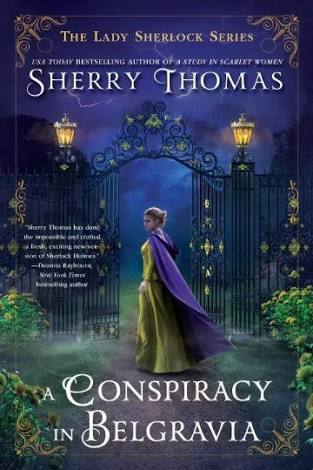It can be argued that the purpose of entertainment, any entertainment, is escapism. Immersion in a preferred diversion allows us to indulge ourselves in ways that aren’t doable in everyday life. The flavors to choose from are almost limitless: the arts, sports, gaming, movies, YouTube…and of course, books. I read to challenge myself, I read to learn something new, I read to figure shit out —but I also read to slide into a little old-fashioned popcorn escapism. And when it comes to escapism, nothing beats a deep delve into places I don’t want to go. The best way for me to get out of town is curling up with a book and getting down with some armchair travel.
I LOVE armchair travel. I don’t have to pack anything, I can have snacks anytime I want, and most importantly, I don’t have to pack anything. It’s not that I don’t love going places. I really do. I just hate packing. When choosing an armchair travel book, I’m not fooling around. I don’t want some gentle, humorous vacation anecdote. Think thickly forested tropical jungles, rivers that traverse entire continents, or monsoon-drenched mountain topography. Throw in a full narrative involves a journey from one end of a country to another and I’m helpless to resist. As long as I’m not going somewhere, I want to not go to as much of it as possible.
Armchair travel also gets me off the hook for pretending to embrace new, unnerving experiences. Bluntly put, I am a big fat coward. In real life, I do not enjoy situations that intimidate and/or terrify me, but I bulldoze my way through my discomfort when I have to. But in my entertainment? Why I gotta suck it up? There are some non-negotiable scary things that I’m just not invested enough fake my way through. Take horror movies, for instance. My system can’t take looking at all that spurting blood and what’s the payoff? If I make it through Saw, I can do the whole awful experience again with Saw II? SRSLY. Hard pass. Accordingly, my armchair travel often centers on locations where I’m never going to go in person because it’s TOO SCARY. Specifically, I am always going to avoid any place on the globe where one can find the Giant Restless Spider Populations. If a given locale has spiders the size of frisbees, I can’t. I. CAN. NOT. (This is not meant to disparage spiders or the spider-loving humans among us. You’re all lovely and amazing and can you just stay on that other side of the room please? Or maybe outside? Yes. Outside is better.) But I definitely have enough gumption to read about spider-infested places, because I am a profile in courage.
Whether you prefer your arachnid-infested vacations fictional or non-fictional, I’ve got you covered. These books also have jungles, treasure, world history, and tigers. Grab your can of Raid and let’s jump in.
The Strangler Vine, by M.J. Carter, is an Edgar-nominated novel set in 1837 India, at the height of British colonialism and the dawn of the Victorian era. When it came to establishing British rule in invaded nations the British government was dependent on the influential and powerful British East India Company. Chartered in 1600 to pursue and protect trade routes for Britain, the British East India Company was a strange hybrid of army, for-profit corporation, and unchecked police force that leveraged the veneer of the British government without any accountability to any checks or balances. The odd structure of the company – private ownership that rested in Britain’s ruling peer class acting to create wealth for the nation – was a conflict of interest nightmare that spawned opportunities for abuse and corruption, with the populations of the countries that East India looked to dominate paying the price. Where was the morality in disregarding the culture and existing governments of invaded countries? What dictates how we choose our loyalties? The Strangler Vine lays out these questions as a brilliant structure for a good old-fashioned road adventure and mystery thriller. Newly arrived in India, rookie East India officer William Avery is reluctantly paired with disgraced Company veteran Jeremiah Blake and tasked with finding the missing Xavier Mountstuart, a lauded poet whose latest work has caused a scandal within the British community in Calcutta. The East India Company wants Mountstuart found so they can safely send him back to Scotland and settle the scandal…or do they? The motives and means surrounding Mountstuart’s recovery provide the thriller backbone to this story, and you will root for Avery and Blake’s unlikely friendship. I love a plot that is predicated on ‘capture the threatening poet’. It’s a fast-paced, quixotic book, and it contains the best chase scene I’ve ever read. It also has a man-eating tiger. It probably had a bunch of India Jungle Spiders too but I closed my eyes during all those parts.
The Lost City of Z, by David Grann, is a non-fiction account of Victorian-era British explorer Percy Fawcett’s obsessive search for the legendary, lost city of El Dorado in Brazil’s Amazon. The same British Empire colonialist philosophy that created the East India Company also fostered a generation of British explorers, men who crisscrossed the world and brought proof of their travels back home to Mother England. Some explorers were motivated by science, to find and classify new species of flora, fauna, and animal. Some were motivated by competition, to be the first to climb mountains or cross the Arctic Circle. And some were motivated by acquisition, seeking caches of gold and treasure. It was this last category that Percy Fawcett falls. After years of expeditions in Bolivia, Brazil, and Peru, Fawcett was convinced that the Amazon hid the ruins of El Dorado, an ancient city thought to be only a myth. Sure that he had determined its location, Fawcett led a search party that included his son into the jungle in 1925. The group disappeared. David Grann’s description of turn-of-the-century South American travel and his own foray into the Amazon are almost suffocatingly accurate. Well, I assume the description is accurate. It sure felt accurate, as I checked every room I entered for giant Brazilian monkey spiders for days after I finished the book. For all its classic adventure narrative, The Lost City Of Z’s examination of Fawcett’s single-mindedness and the larger implications of the relationship between the Old World and the New World is incredibly compelling.

All packed!
Have a lovely time, keep your windows rolled up, and call me when you get there! In the meantime, I am going to go not unpack. I’m exhausted.
#checkforspiders
Action Items
The Lost City of Z was developed as a film and is being released this year. Robert Pattinson is in it and I was surprised because I was unaware of recent vampire activity in Brazil. Anyway, watch the trailer here.





